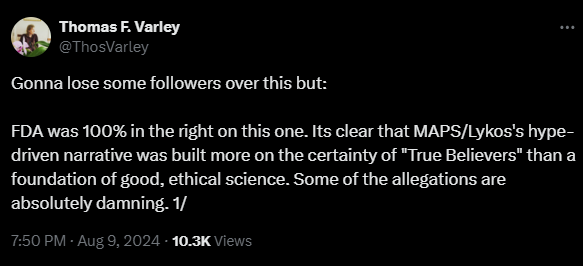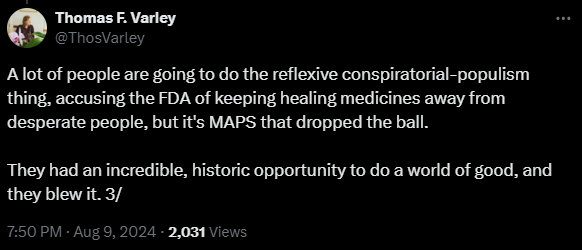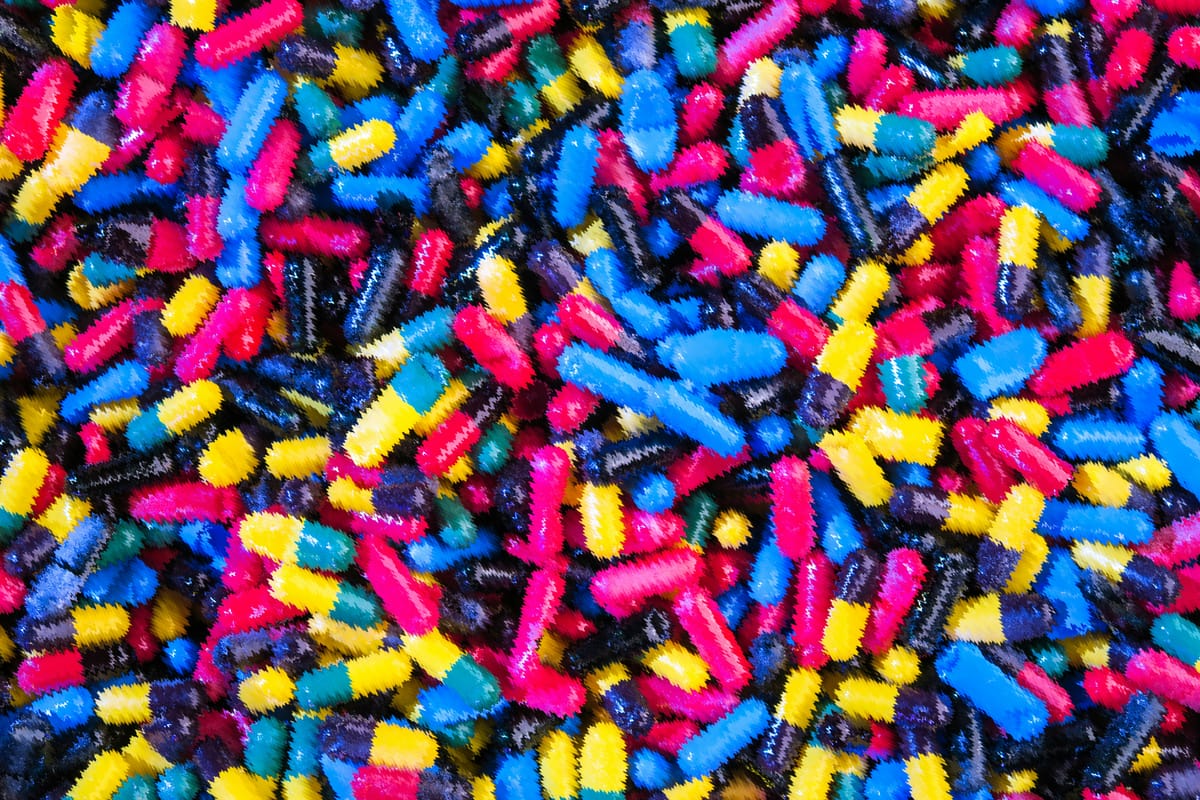As many in the health policy world anticipated, the US Food and Drug Administration has dealt Lykos Therapeutics a major setback. The psychedelic mental health company will not earn approval for its MDMA-therapy combo…yet.
The FDA signaled that they’ll require an additional clinical trial that addressed concerns raised in this application. I wrote about some of these concerns after a uniquely emotional public hearing at Lykos’s FDA advisory committee meeting, which brought up a number of problems with the company’s clinical tests: a potentially biased “functionally unblinded” design; a lack of data on diverse populations; gaps in safety data; and perhaps most notably, reports of alleged misconduct in the the therapy procedures.

At the time of this writing, the FDA’s response to Lykos hasn’t been made public, so we can’t say for sure what the agency expects out of a new clinical trial. But the story that’s emerged throughout this turbulent journey (see Olivia Goldhill’s excellent writing on the topic in STAT) is that regulators are not as outright opposed to the psychedelic as many have thought in the past.
Even the harshest critics of Lykos — bioethicists and patient advocates who have lambasted the company for its painful alleged oversights that include sexual assault in the middle of a clinical trial — don’t view this as a dead end. Nor do they necessarily want this to be the end of the story for psychedelics and mental health. They just want the drug approval process to be conducted properly. “I hope that future research will be conducted to a higher standard,” Neşe Devenot, a researcher of psychedelics law and ethics, told me.
Devenot and colleagues at the psychedelic education nonprofit, Psymposia, applauded the FDA decision. “Psymposia believes in the potential of MDMA and other psychedelics to address a range of indications,” they wrote in a statement. “This decision protects the future of the psychedelic field by avoiding a rush to market with preventable harms, as occurred in the opioid crisis.”
In the statement issued August 9, Lykos acknowledged that their application “represents a novel combination of drug and therapy that raises unique research questions.” They also subtly addressed criticisms from Devenot and others (emphasis mine):
The issues expressed in the [FDA response letter] echo those raised during the FDA Advisory Committee meeting on June 4, 2024. The Company and other stakeholders have expressed concerns around the structure and conduct of the Advisory Committee meeting, including the limited number of subject matter experts on the panel and the nature of the discussion, which at times veered beyond the scientific content in the briefing documents. FDA itself has acknowledged potential problems with the Advisory Committee process and has opened a public docket seeking comments on how it can be improved.
Lykos says they’ll contest the FDA’s decision before re-submitting their application and potentially designing an additional clinical trial.
All things considered, this news feels like more of a speedbump than a door slammed shut. Nearly 90% of Americans reportedly support controlled therapeutic use of psychedelics. Some supporters worry that the “easier” one-time treatment proposed for MDMA may almost conspiratorially work against eventual approval, as it does not serve the interests of Big Pharma and its “revolving door” to FDA. I’m not gonna wade into those waters because 1) it’s 5:30 p.m. on a Friday, and 2) I don’t want to.


The more relevant lingering question for me is how will psychedelics eventually get regulator’s blessing? Other companies around the world have clinical trials in the works for different psychedelics. For example, Australian firm MindMed just earned a “breakthrough status” from the FDA this year after its results suggest that one dose of its LSD formulation provided lasting anxiety relief. They plan to conduct Phase 3 efficacy trials for its formation, MM120. But despite that continued progress, the more than 10 million people with PTSD in the US await progress on MDMA trials designed with them in mind specifically. If Lykos conducts an additional Phase 3 trial, will it address the therapy concerns it apparently wants to minimize as veering “beyond the scientific content”? If not, it’s hard to imagine those concerns dissolving away.




